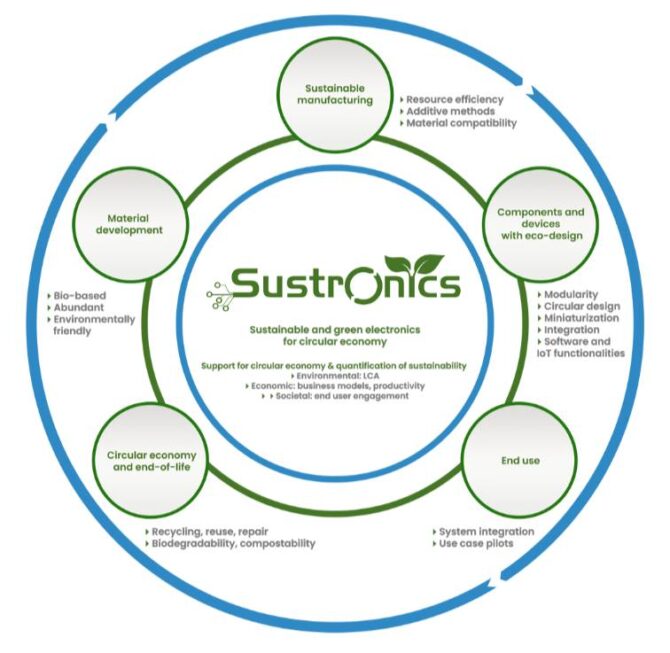
EU project to address global challenges of e-waste, finite electronic materials
EP&T Magazine
Electronics Environmental environmental EU-legislation Sustronics VTTPush for more environmentally friendly electronics intensifies with new EU legislation around the corner
The EU project Sustronics has kicked-off with the aim to lead the European electronics industry towards sustainable materials, design, manufacturing methods, and improved circularity and energy efficiency. The project has a budget of EUR $40 million, with about a fourth coming directly from the EU under KDT JU instrument.
Headed by Philips, the Sustronics project will pioneer design, materials and manufacturing of devices that will comply with strict sustainability demands dictated by the goals of the Green Deal and help companies meet the requirements of upcoming EU legislation concerning sustainable products. The 3-year project comprises nine pilots with the aim of redesigning existing devices or creating entirely new ones.

Environmental and resource realities are also joined by legislative pressure to address sustainability issues with electronics. During early 2024, new legislation – Ecodesign for Sustainable Products – concerning sustainability requirements of products will go into effect. As a result, all products sold in the EU will be required to prove their sustainability. The new legislation will impact both the European electronics industry as well as any company coming into the EU market.
“In the near future, companies and consumers will need to choose the sustainable route in the manufacturing and consumption of electronics. The fact is that the current mainstream materials used in consumer and enterprise electronics are finite – we will run out of them,” says Liisa Hakola, senior scientist and senior project manager at VTT, one of Europe’s leading research institutions located in Espoo Finland and owned by the Finnish state.
Change the foundation of the industry
We want to change the foundation of the industry so that sustainable materials and processes become the new normal for electronic products – without compromising the performance, and circulated products will be a mainstream option for consumers,”
The ambition of Sustronics is to be the leading project that builds an ecosystem showcasing how the electronics industry can address its sustainability challenges. For example, due to rich natural resources, such as cellulose, and scientific expertise of multiple research and development organisations, Europe is a global leader in the field of bio-based materials. With participants representing, e.g., research hubs, material companies, device manufacturers, and electronic recycling, the Sustronics project will further strengthen the strategic autonomy of Europe as a leading, independent technology hub while addressing Green Deal objectives.
